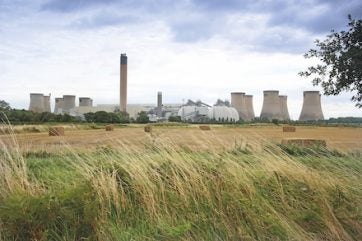
The agreement with Karbon-X is the latest in a string of previously announced carbon removals MoUs involving Drax Group, including those with Respira and C-Zero.
Drax Group also launched a new independent business unit earlier this year that is focused on “becoming the global leader in large-scale carbon removals.” Drax contends that large-scale carbon removal, such as that it says is achievable via BECCS, is widely regarded by the scientific community as being critical to meeting the challenge of moving faster to tackle the climate emergency.
The new business unit, based in Houston, USA, will oversee the development and construction of Drax’s new-build BECCS plants in the US and internationally, and it will work with a coalition of strategic partners to focus on its goal of removing at least 6 Mt of CO2 per year from the atmosphere.
Drax Group draws attention to research published by Foresight Transitions, a consultancy led by a team from Imperial College, UK, which concludes that BECCS is necessary to help the United States achieve its ambitious decarbonisation scenarios, deliver a zero-carbon power system by 2035 and become net-negative by 2050. The study concludes that the integration of BECCS is cost-effective, more so than other technologies, whilst having the potential to strengthen system reliability across the three major regional grids in the USA (CAISO, MISO, and ERCOT) and reducing interconnection delays.
Drax describes BECCS as a “carbon removal technology that uses sustainably sourced biomass to generate renewable energy while permanently sequestering the carbon underground.” Measuring the impact of these “high-quality” carbon removals is more straightforward than for other solutions, such as “nature-based” removals, Drax contends, “resulting in high demand” – although Drax has critics who question the sustainability of its BECCS strategy and draw attention to the very large government subsidies it has attracted.
Karbon-X intends to sell the credits it purchases from Drax on the voluntary carbon market, enabling individuals and organisations to achieve their own emissions reduction targets. It is said to follow “a stringent set of guidelines to ensure it selects only high-quality projects and providers, like BECCS by Drax.”
In 2019, Drax Group announced a “world-leading” ambition to be carbon negative by 2030, installing BECCS technology at two units of its power plant in Yorkshire, UK, once the biggest coal fired power station in Western Europe.
This Drax BECCS project has recently received planning approval, with the granting of a Development Consent Order.
Drax power station currently has four biomass fuelled generating units and produces around 4% of the country’s power and “9% of its renewable electricity”, Drax says.
It argues that BECCS is “currently the only credible large-scale technology that can both deliver carbon removals and generate renewable power.”
The BECCS plans for Drax would enable it to “play a critical role in supporting UK energy security and would enable it to remove approximately 8 million tonnes of carbon dioxide per year when both units are fully operational.”
Recent Baringa analysis, quoted by Drax Group, found that delivering BECCS at the Drax power station could, if implemented, “save the UK £15bn in whole economy costs between 2030 and 2050 providing a more efficient, cost effective and straightforward pathway to meeting net zero targets than other potential options.”
Drax Group says it “plans to invest billions in its BECCS plans, subject to the right support from the UK government.”
The DCO decision letter makes it clear that the planning authority was satisfied that a 95% capture efficiency could be achieved by the proposed BECCS scheme at the Drax site and that it was reasonable to treat biomass combustion emissions as zero rated. It was also concluded that that over the whole life of the project “there would be negative GHG emissions due to carbon captured in the operational phase.”
A further significant recent development for Drax CCS plans was the memorandum of understanding signed with Viking CCS, the Humber, UK, based CO2 transportation and storage network led by Harbour Energy, together with partner bp, to assess options for transport and storage of CO2 in the Humber region.
The MoU will see the companies work together on an early pipeline study to explore options that could connect Drax power station to the depleted Viking gas fields in the southern North Sea.
Once operational, and subject to a final investment decision, the Viking CCS cluster could capture and store up to 10 million tonnes of UK CO2 emissions per annum by 2030 and up to 15 million tonnes by 2035.
Image: Drax power plant site, UK (courtesy of Drax Group)






